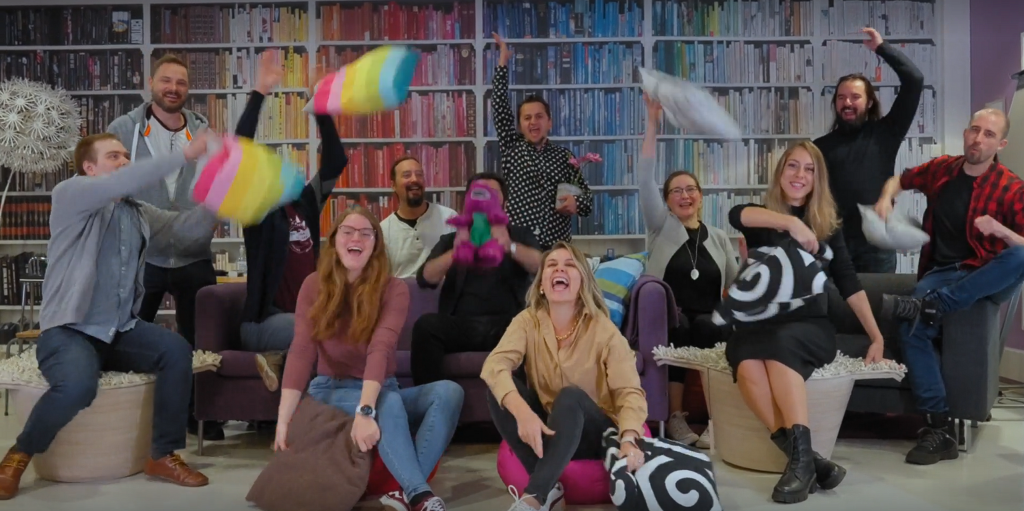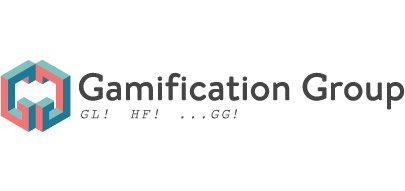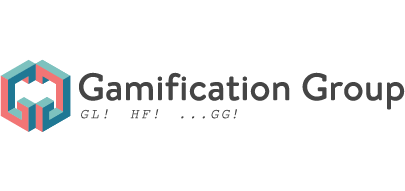PhD Positions (4Y): Gameful Human-Nature Interaction

We are seeking a Postdoctoral researchers on the area of gameful nature interaction to join us at Gamification Group and/or Gameful Futures Lab (Gamification Group | GL! HF! GG…), Tampere University, particularly within the research domains related to the UNITE Flagship (see What is gameful forest interaction?).
Our interactions with forests and nature are increasingly mediated by digital technologies, from smartphone apps and wearable devices to virtual engagement platforms. This technological layer between ourselves and the natural world has fundamentally shifted our perspective on what it means to be present in nature. Whether we’re planning forest routes, tracking bodily performance while running through landscapes, managing the needs of non-human kin through qualitative approaches, and quantified metrics, or experiencing natural environments within digital spaces, technology plays a significant role in shaping how we understand and relate to nature. Through these mediated interactions, our understanding of nature becomes a blend of physical presence and digital interpretation, influencing both our connection to the environment and our role within it.
In this position, we invite candidates to propose their own research agenda by drawing on methodologies including design research methods (e.g., research through design, critical design, speculative design, design fiction, prototyping), humanistic research (e.g., ethnography / autoethnography), controlled lab experiments (e.g., psychophysiological measurements) or field work in nature (e.g., observations, sampling). The research in the positions is related to the work package “Gameful forest interaction for meaningful experiences and practices” of UNITE Flagship which overall is composed of 1) creating gameful applications/prototypes embedded in human-nature interaction, 2) conducting multi-method research on how these approaches progress fruitful human-nature interaction related to cognitive, affective, social, motivational and cultural dimensions and consequently 3) developing human-nature interaction leading to ecological, economical, social and cultural sustainability. Candidates can choose the path they want to progress among the paths of Engage, Know, Empathise, Care and Evolve.
Gamefulness-related keywords to the position: Location-based gaming, drones/UAVs -based gaming, simulation games, game-based decision making systems, gamified applications, quantified-self, exergaming, gameful wearables technologies, novel gameful interfaces, virtual reality, augmented reality, digital twins, tangible and embodied interaction, posthuman games and playful biomaterial engagements.
Outcome -related keywords: Corporate social responsibility, more-than-human approaches and practices, fictional futures and speculations, positive psychology and motivation (e.g. intrinsic motivation, empowerment), cognitive benefits (e.g. ecology literacy, decision making, learning), social benefits (community building), well-being, cultural resilience, green economy, sustainable business practices (e.g. marketing, finance, management), and ecological sustainability.
Forest / ecology data and systems -related keywords (optional, but beneficial connections): remote sensing, point-cloud data, crowdsourcing (of ecology forest data acquisition, processing and use), silviculture, forest/tree data (growth, spread, wood/tree properties), climate, ethics of engaging with nature.
JOB DESCRIPTION
We expect that the suitable candidate will have experience, background, skills and interest in the topics related primarily to gamefulness keywords, but also preferably to forest and outcome related keywords. In this position, the tasks of the candidate will focus on using gamefulness in the nature domain and expected to develop their own research agenda. Candidates are expected to design studies and disseminate them in a variety of ways including publishing in academic venues, demonstrating the results in related events and also putting effort to communicate it to the general public. The work includes research planning, experiment organising, data gathering and analysis, article writing, and dissemination of results. Moreover, the candidate is expected to participate in project-wide and funding acquisition. Teaching and supervision will be negotiated based on the interests of the candidate.
The candidate must, later on, enrol and need to be accepted (within the trial period) into an applicable doctoral program in the Faculty of Information Technology and Communication Sciences. Please visit the admissions page for more information on eligibility requirements. The candidate may start the enrolment to a doctoral program after the candidate has been recruited, and therefore, the candidate does not need to hold a doctoral program position before applying.
REQUIREMENTS
The below requirements are the qualities we envision to be suitable for the tasks defined in this project. However, we encourage all candidates who see themselves contributing to the project in unique ways to apply.
- Minimum qualifications
- Applicable degree: i.e. Master’s degree in relevant fields
- Applicable degree: i.e. Master’s degree in relevant fields
- Useful dimensions of candidate’s background
- Design (e.g., industrial product design, interaction design, graphic design, game design, communication design)
- Computer science / Human-computer interaction / Information systems
- Forestry sciences / geoinformatics
- Educational sciences (especially public understanding of science)
- Applied psychology
- Economics (i.e. business, marketing, finance)
- Tourism / leisure
- Media / communication studies
- Possible methodological skills
- Aptitude for quantitative and/or qualitative empirical research (especially field/lab experiment)
- Aptitude for psychophysiological and psychometric measurement
- Ability to independently develop gamified or VR environments (software)
- Ability to develop working prototypes of wearable and drone systems (hardware)
- Understanding and experience in design driven methodologies (speculative and critical design, research through design, participatory design, co-design)
- Advantageous qualities
- Impeccable academic article writing/preparation productivity
- Drive for rigorous and impactful research
- Drive for a career in research
- Interest in ecology, nature, forests, nature-related activities.
WORKING ENVIRONMENT
The accepted candidates will work in the close collaboration of other researchers of the UNITE flagship, the members of Research Center of Gameful Realities as well as in the context of the larger strategic profiling area of the Tampere University in Gamification, Extended Reality and their application towards holistic sustainability.
Flagship consortium: UNITE | Forest-Human-Machine Interplay is a prestigious research Flagship consortium composed from Tampere University, University of Eastern Finland, Finnish Geospatial Research Institute FGI and Natural Resources Institute Finland. The position offers unique vantage points and entry to an ambitious consortium that represents top international scholarship in the areas of gameful technologies and holistic sustainability. UNITE brings together the world’s leading research groups in the fields of forest sciences, geoinformation and sensor development, and gamification.
The Research Centre of Gameful Realities (RCGR) is a trans-disciplinary research centre which brings together the Faculty of information Technology and Communication Science, Faculty of Business Administration and Management and Faculty of Education at Tampere University. It is internationally revered for seminal academic and societal contributions in the areas of novel technologies such as motivational information systems (e.g. gamification, game-based learning, quantified-self, persuasive technologies), internet commerce (e.g. crowdsourcing, crowdfunding, sharing economies, game economies), new media (e.g. esports, streaming, immersive journalism) as well as human-computer interaction (VR / AR, wearables, transhumanism, user interfaces, more-than-human interaction). RCGR is one of the most prolific research centres internationally in its pursuit to wield gameful approaches towards the flourishing of the planet, people and prosperity.
See more: https://bit.ly/rcgrvideo
LIFE IN TAMPERE
Tampere is one of the major academic hubs in the Nordic countries and offers a dynamic living environment. Tampere region is one of the three most rapidly growing urban areas in Finland and home to a vibrant knowledge-intensive entrepreneurial community. The city is an industrial powerhouse that enjoys a rich cultural scene and a reputation as a centre of Finland’s information society. The city campus of the Tampere University, where the candidates will be located, is walking distance to the city center. Tampere is an epicenter of game research internationally. For more information on Tampere and Finland, please visit:
HOW TO APPLY
Please submit your application through our online recruitment system (link). The closing date for applications is December 2, 2024 (at 23.59 EET / 20.59 UTC). Please write your application and all accompanying documentation in English and attach them in PDF format only. Candidates are expected to start the positions as soon as possible.
List the attachments that candidates should append to their applications:
- CV
- List of publications
- One or two samples of academic writing (e.g. articles)
- A motivation letter (max 2 pages) that briefly outlines:
- In Page 1: Motivation to apply, earliest starting date, and any other miscellaneous remarks that the candidate wishes to make. Please clearly specify which of the positions listed above you are applying for.
- In Page 2: Also a tentative short research plan or research idea you would like to undertake in the position (this plan primary functions as a departure point for discussion and will be agreed upon together with the selected candidate)
- Optional: A design portfolio highlighting the candidate’s creative and/or artistic work.
Contact:
Prof. Juho Hamari, juho.hamari@tuni.fi
Asst. Prof. Oğuz ‘Oz’ Buruk, oguz.buruk@tuni.fi



